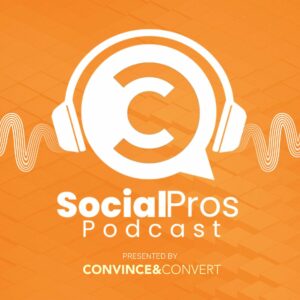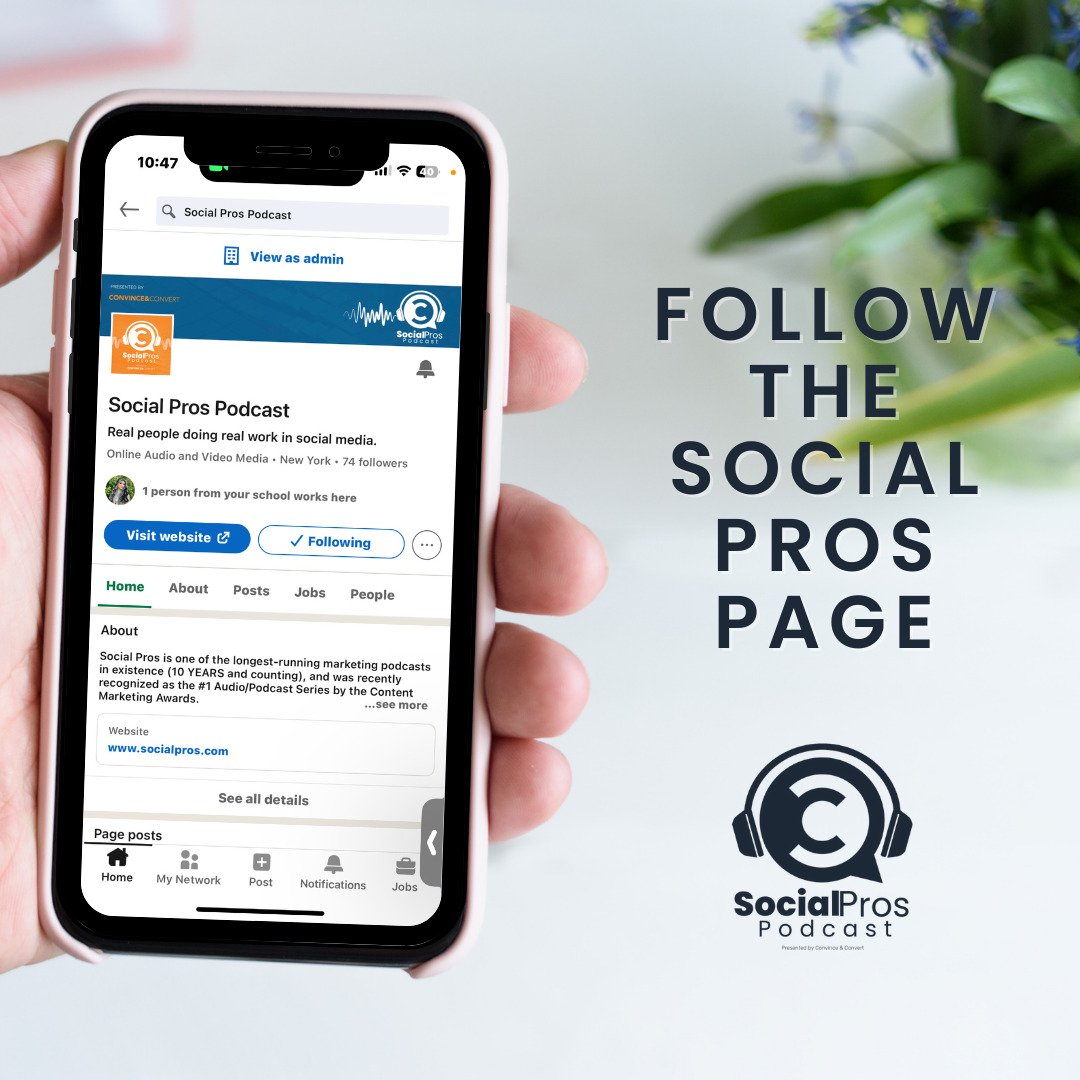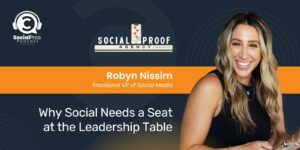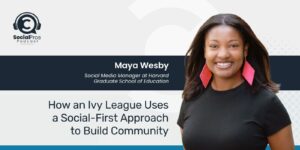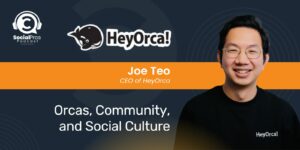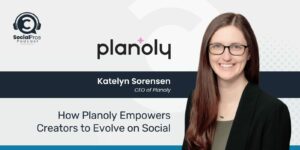Hosted By
About Social Pros Podcast:
Social Pros is one of the longest-running marketing podcasts in existence (10 YEARS and counting), and was recently recognized as the #1 Audio/Podcast Series by the Content Marketing Awards.
Our purpose? Making sure that we speak to real people doing real work in social media.
Listeners get inside stories and behind-the-scenes secrets about how teams at companies like Google, Reddit, Glossier, Zillow, Lyft, Marvel, and dozens more, staff, operate, and measure their social media programs. With 600+ episodes, the Social Pros Podcast brings the humanity of social media to the forefront, while providing incredibly useful marketing strategies that listeners can immediately implement.
Follow Social Pros on LinkedIn.
To inquire about becoming a guest or show sponsor, please email our Executive Producer, Leanna Pham, at leanna@convinceandconvert.com.
Apple Podcast Reviews:
The Social Pros podcast has quickly become a favorite in my feed! I'm consistently impressed by the engaging conversations, insightful content, and actionable ideas. I truly learn something every time I listen!
@Arlie KThis is absolutely an awesome listen for anyone in communications or social media!!
@Will31CThis podcast has become one of my staple weekly podcasts for learning about marketing! Love the conversations that they have and it's always enjoyable and educational!
@Simonstone95Love the podcast - informative, in depth and spot on for any business size.
@MissTriathlon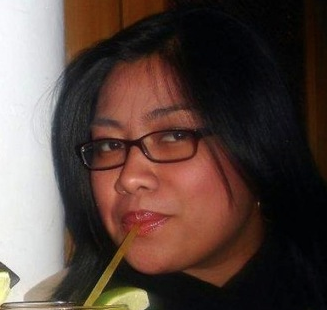
Two team members from the online education company 2tor join Jay Baer and Eric Boggs on the Social Pros Podcast this week – Alexa Scordato, Director of Communications & Social Media, and Harrison Kratz, Community Manager for the MBA@UNC program. 2tor was founded in 2008 by a team of educators who wanted to take online […]

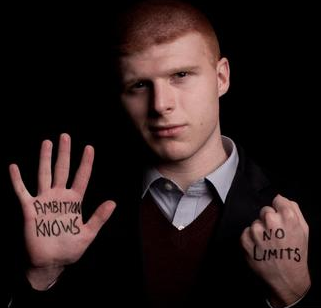
![]() Two team members from the online education company 2tor join Jay Baer and Eric Boggs on the Social Pros Podcast this week – Alexa Scordato, Director of Communications & Social Media, and Harrison Kratz, Community Manager for the MBA@UNC program. 2tor was founded in 2008 by a team of educators who wanted to take online education to the next level. Now, they partner with rigorous higher education programs like UNC, USC, and Georgetown to deliver online degrees to students around the world. Alexa and Harrison discuss some of the barriers in working with higher education systems and how they manage communities of students who aren’t historically known to be active online. Read on for some of the highlights or listen below for the full podcast.
Two team members from the online education company 2tor join Jay Baer and Eric Boggs on the Social Pros Podcast this week – Alexa Scordato, Director of Communications & Social Media, and Harrison Kratz, Community Manager for the MBA@UNC program. 2tor was founded in 2008 by a team of educators who wanted to take online education to the next level. Now, they partner with rigorous higher education programs like UNC, USC, and Georgetown to deliver online degrees to students around the world. Alexa and Harrison discuss some of the barriers in working with higher education systems and how they manage communities of students who aren’t historically known to be active online. Read on for some of the highlights or listen below for the full podcast.
Listen Now
Click the play button to listen here:
[podcast]http://socialpros.podbean.com/mf/web/eg6wkx/SocialProsEpisode34.mp3[/podcast]
Download the audio file:
http://socialpros.podbean.com/mf/web/eg6wkx/SocialProsEpisode34.mp3
The RSS feed is: http://feeds.feedburner.com/socialprospodcast
Find us on iTunes: http://itunes.apple.com/us/podcast/convince-convert-blog-social/id499844469
Please Support Our Sponsors
Huge thanks to data-driven social media management software company Argyle Social for their presenting sponsorship, as well as Infusionsoft, Janrain, and Jim Kukral at DigitalBookLaunch. We use Argyle Social for our social engagement; we use Infusionsoft for our email; Janrain is our crackerjack social integration company, and Jim is our guest host for the podcast (and a smart guy).
Social Pros Highlights For Your Reading Enjoyment, Thanks to Speechpad for the Transcription
2tor is Changing the Way Online Education Works
Alexa: The company was founded in 2008, and our founders set out to build a company that would prove to the world that online education could fundamentally be great, and you do not have to compromise quality in favor of quantity.
There’s a lot of skepticism in the marketplace surrounding online degrees. 2tor’s model addresses a lot of that. We provide the infrastructure, upfront capital and the technology needed for top tier universities to take their programs online. They control the faculty, a selective admissions criteria, and the curriculum, and then 2tor does the rest.
Eric: How do you find your customers? Is your team out talking to programs that want to move online, or do you guys tend to get inquiries from programs that want to run their classes online? How does that work?

Alexa: I think when we first started, most people looked at what we were doing and said, “No way. There’s no way you’re going to get a school like UNC or Georgetown on the Internet. Faculty will not go for it, provosts, presidents, it’s too hard, it’s too much work, it’ll never get done.”
We were very fortunate, in that we found our first partner, which was USC Rossier School of Education. They were our flagship program, and we took their masters of arts and teaching program online. It was a program of maybe 100 on-campus students. There are now over 2,000 students in 47 states and 30 countries. That has grown to be the fastest growing not for profit teacher program in the country.
Ever since we worked with that first program, it’s gotten a lot easier. The world today looks very different than 2008. There are also some really interesting initiatives happening. I’m not sure if you’re familiar with MIT’s OpenCourseWare, their new partnership with Stanford and Harvard.
There’s also this Coursera initiative which is a bunch of top tier schools taking their courses online for free. Again, 2tor’s model’s a little bit in that we’re providing actual accredited degree programs. Yeah, as far as getting partners, we’ve built a reputation, we’re really the first company to be doing this. We have the benefit of having a lot of schools come to us. We’re lucky in that sense.
Jay: To take a school to actually do this kind of program, it seems you’d really have to rework a lot of curricula to really embrace the immersive online technology you’re talking about. They can’t just say, “OK, rock and roll, let’s start this up in the spring,” I suspect.
Alexa: Absolutely. My background is working with consumer brands, and I would say that it’s exponentially harder to do what we’re doing than say take a financial services company or even a healthcare provider and try to incorporate some technology there because of higher ed in the vertical. You’re talking about brands that have existed for hundreds of years. They have had no need to really iterate on the delivery of their ‘product,’ I guess.
For us to go in there, I would say that the technology, yes, it’s disruptive, but as a whole, what’s even more I think profound as far as what we do as a business is we’re just trying to change the mindset almost of a lot of folks who’ve really been doing the same thing the same way for a very long time.
Harrison: To go further than just the curriculum, it really requires a buy-in from top to bottom as far as how we deliver this program, how we market this program, and how we really just greet the public around this program.
Working with UNC and a great school like Kenan-Flagler, virtually since the program launched, I’ve been able to see how their marketing team has really embraced some of these new initiatives. They’re really amping up their social presence. They’re starting to look not only at how they deliver their program, but how they present themselves to the public and updating that for the 21st century and as we move forward in a really digital marketplace.
Using Technology to Bring Students Together
Jay: Interesting that there’s been some halo effect in the social realm from what you’re doing in the online education and what’s now being deployed in the traditional offline sense.
From a technology standpoint, one of the things I think is really, really fascinating in some of the news coverage of 2tor and the system has talked about this in the past, is that a lot of the actual classes online are almost like a Google Hangout. I know you have your own technology, but it’s probably the easiest paradigm for Social Pros listeners to grasp.
Everybody who’s in that class, it might be a dozen students, all have their video icons up at one time. What I have read is comments from students at UNC who say it’s actually even more personal and visceral than a classroom experience, even though I’m just at my own house using my own laptop. That is a fascinating turn of events. Can you comment on that a bit?
Harrison: Yeah, absolutely. Working with the students at UNC, you’re spot on. In this certain sense, students really seem to gain more out of it. Some of the articles and news coverage that we’ve gotten have commented on how our programs really remove the back row of the classroom. In these classes of 10 to 15 students, you have every student on video with their professors, so you can see what everybody’s doing.
These professors can tell if the student’s paying attention, not that their eyes are wandering, but it does keep you alert throughout the class. One of the common things that I have learned from the students, having worked with them in hosting information sessions around the country and also with them doing student blogging for our program blog, is that they say that this isn’t really an online program. It’s more Kenan-Flagler from afar.
This goes back to Alexa’s point, that they’re really not compromising any sort of the social experience or even the academic experience while being in our program. Our technology is the key part to that experience.
Alexa: Again, delivery of it is live, real-time classes. Like you said, a Google Hangout is a great parallel to that. What’s really funny for me though is that a lot of people still can’t grasp that concept, and it’s something that I think for social media professionals, we probably get immediately, because we make a ton of relationships on the Internet.
It’s always perplexing to me that social media’s really ubiquitous now, pervasive in the business world. We do virtual conference calls, yet when comes to say, if you can take a class online and you can have a meaningful relationship with someone across the country, people just don’t seem to make that connection, at least not yet.
Community Management for an Online Higher Education Program
Jay: Harrison, you’re the community manager for this program. Can you talk a little bit about, because it’s not a product or a bank or a Twizzler’s, what community management means in this context? Especially because you’re the bridge between UNC and 2tor. How does that work, and what are your day-to-day community management responsibilities?
Harrison: I think at this point, it’s really evolved, just within the last year and three months since I joined on as a community manager for this program. Where at first, when we first launched the program, being community manager was I think the most popular sense as far as managing our social media talents, getting content up on our blog, and really figuring out how we’re going to reach our external community as far as how do we reach these potential students, how do we give them the information that they need?
Because when I first joined, this goes back to the skepticism, the conversation surrounding our launch of the program was, “Can this even work? Can this online MBA program even work in the business school space?”
To be honest, it took a while, but then I would say in the last half year it’s changed to OK, now that we’ve proven that this is working and working beautifully, how do we tell our story, and how do we differentiate ourselves from the other programs that are attempting to go online and have gone online?
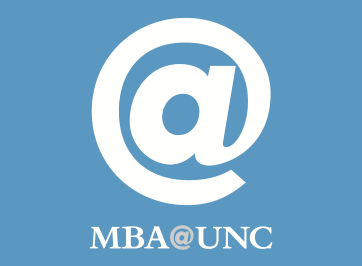 There is still the external marketing as far as telling that story through our different channels. What I love, and this really goes to the actual community management sense, is that I get to work with our students on having them respond to questions, whether it’s in our LinkedIn group from prospective students, responding to external formal questions in MBA chat forums such as “Beat the GMAT” or “GMAT Club”.
There is still the external marketing as far as telling that story through our different channels. What I love, and this really goes to the actual community management sense, is that I get to work with our students on having them respond to questions, whether it’s in our LinkedIn group from prospective students, responding to external formal questions in MBA chat forums such as “Beat the GMAT” or “GMAT Club”.
Then it’s also working with them to help them tell their story in student blogs. We also get them to come out to our information sessions. It’s being able to leverage their voice, because for any MBA program and for any brand really, your customers, both current and past, are your best marketing voices.
That’s really what we’re trying to leverage, because while we don’t have all our students on campus and in person all the time, we really have to figure out how we can leverage their voices but keep them unified no matter where they are in the country.
I think working with our different teams, I’ve found success in being able to do that. Our students are more than willing to promote the program because their experiences have been so well above their previous expectations. I think that’s definitely helped in my job as far as managing community and then leveraging them to build more community and bring in more students.
Students as Social Brand Advocates
Jay: I imagine in this case, because it’s so new, everything about it is new, you haven’t been doing it very long. It’s such a different way of thinking about something like an MBA or a higher education program, advanced degree, that the students who are going through the program now and having a great, positive experience, they’re going to be the best sales people, right?
How can you facilitate their conversation in social? How can you amplify their message that they’re going to have that ripple in the pond impact that will make it even easier to bring about the next, the second, third, fourth classes of this program?
 Harrison: What’s different, what’s sometimes difficult but ultimately just different is our students aren’t exactly social in a sense. It’s not like all of our students are on Twitter but we’ve acquired them through Facebook and LinkedIn, even Google+.
Harrison: What’s different, what’s sometimes difficult but ultimately just different is our students aren’t exactly social in a sense. It’s not like all of our students are on Twitter but we’ve acquired them through Facebook and LinkedIn, even Google+.
Jay: You’re not doing Facebook ads for the $100,000 MBA program? I can’t believe it.
Harrison: We are, but you still see a lot of students, even if they are on Facebook, they’re not social like the four of us would be, like we’re on there, we’re sharing information about the industry, we’re sharing our business experiences.
Especially when the program started, getting those online advocates was very difficult. Now though, I’ve gotten compliments from students that they love the content that we’ve been sharing for the program.
That’s really encouraging, because I’ve seen them start to adopt this form of communication, marketing the program, and also using their voice online. Because it is different though, as far as if you are running a major brand, and I’m sure Alexa can comment on this more since she has worked with large brands.
A lot of your community is already on social media. They are using their voices, they are communicating with their friends. For us, that has not been the case, because you are dealing with very, very busy business professionals that haven’t really utilized social media as their mode of communication, as their primary mode of communication.
It has been different, but we’re working through it. I think we’ve definitely been turning our students into social advocates.
Measuring Success in Community Management
Eric: Harrison, you made a comment that reminded me of something that Alexa mentioned in an earlier conversation about how you guys measure your success as a community management and social media team. Can you comment on that, Alexa? I know you guys are really focused on filling the enrollment funnel in a lot of ways.
Alexa: Sure, absolutely. When we talk about our competitors at 2tor, it’s two pronged. Our prospective students who are going to enroll in our programs are also looking at traditional, on campus programs. They’re looking at programs that are selective and rigorous.
That said, from a marketing standpoint, our biggest competitors are actually for-profit entities and lead gen companies who have tremendous advertising budgets and have adopted digital marketing techniques on the web.
For us, a big part of our social strategy is focused on generating awareness about this program through SEO. I always tell everyone, or at least how I explained it internally, is that you go to search engines and friends and family for the majority of your purchase decisions. It shouldn’t be any different when it comes to exploring your education opportunities.
For us, we’ve spent a lot of time optimizing our websites and really investing in SEO, and then using social media best practices I think to really map those two objectives together.
Eric’s Social Media Stat of the Week: Few Companies are Able to Track Social Media ROI
 Eric: We do indeed have a social media stat of the week. This came through a study from eConsultancy and Adobe, it’s a study they did in August. It aligns interestingly with our guests today. The study found that 57% of companies around the world said the deepest level at which they could track the effectiveness of their social media marketing was in terms of engagement, such as the number of followers, comments, and time spent on social pages.
Eric: We do indeed have a social media stat of the week. This came through a study from eConsultancy and Adobe, it’s a study they did in August. It aligns interestingly with our guests today. The study found that 57% of companies around the world said the deepest level at which they could track the effectiveness of their social media marketing was in terms of engagement, such as the number of followers, comments, and time spent on social pages.
This is probably the eighth or ninth flavor of this stat of the week, but still, businesses are having a hard time tying their social media marketing inputs all the way through to business outputs. Of the study, only 12% of companies that participated were able to map social media directly to revenue impact.
Jay: There are different reasons for that, right? It’s not the same for every company. Sometimes people can’t track behavior because they don’t do anything trackable.
Eric: Yeah. Social isn’t the same direct response channel that say email might be, or paid search might be. There are definitely some hops along the way, but I would expect the number that can map to engagement to look a little bit more like the number that can map to revenue. Still, there’s a big disparity there, and it’s not surprising for a number of reasons.
Jay: But I think that day will come. The software is getting better and the software is getting aligned in a stack so that you can track things. Especially in B2B. It’s much easier to determine the impact of social on a long lead time, considered purchase, data capture, sort of a transaction like a business school sign up as opposed to I’m buying a roll of Lifesavers, how much did Twitter contribute to that?
Eric: Exactly. I think there are a lot of data integrations in the B2B ecosystem that are going to make that even easier going forward.
Social Pros Shoutout
Jay: OK, now we’ve got two guests here, so we’ll see if they collaborated on a Social Pros shout out or if they each have one. Guys, what do you think?
Alexa: We have different ones. I’m going to let Harrison tee it off, because I think I’m going to change mine. Last minute change-up here.
Harrison: All right, so I have two, if that’s OK. I want to give a shout out to Jeff Gibbard, who runs socialmediaphilanthropy.com, and he also runs True Voice Media. He’s one of my old friends from back in Philadelphia, and just a really sharp guy, runs a great business at True Voice Media.
Definitely deserves some more love. He definitely has a good amount of followers, but I think the content that he shares in his blog is spot on and really focuses more on how businesses can go social rather than just social media tactics. I think that’s a really important perspective coming out of the Philadelphia area.
Then just a personal shout out as far as people to follow. I think you should definitely check out one of my buddies that I’ve gotten to know really well through Tweet Drive, my social good initiative that I run. Zach Cole, he’s based out in San Francisco. He’s the director of strategy and analytics at Attention Span Media.
He’s a really sharp, young professional that I think is going to be killing it for decades to come, and I think is somebody, especially out in Silicon Valley, to watch him move through the media and the start up world.
Jay: Terrific, good one. Thanks, Harrison.
Alexa: For me, I want to give a shout out to my friend Sother Teague. He’s actually a bartender here in New York. He’s @creativedrunk on Twitter.
Jay: This is already the best Social Pros shout out we’ve had. This is already setting a new level.
Eric: Searching on Twitter right now.
Jay: Yes, exactly, please continue.
Alexa: It’s so funny, he’s going to be totally freaked out if he gets a bunch of new followers following him. He has paved the way for service professionals to adopt Twitter. A lot of bartenders are struggling to understand social, and I think they’re where we were as an industry circa 2007, what is this Twitter thing?
He’s set a great example for his peers. For me as a person, he just has reminded me about the basics. He engages with his network and builds a loyal following of bar regulars. He has a ton of fun doing that. I think as my career has progressed, I’ve gotten very formal in my strategy docs and whatever. I see him do his thing, and I am just reinspired to just say, you know what, keep it light, keep it fun, and build your community of regulars. Like bartenders do. So, shout out to Sother.
Jay: That’s very topical too. I’m actually sitting right now in Chicago at the Food Service Social Media Universe conference, which is all restaurants and bars and folks like that talking about social media. Very timely, very topical, and with a Twitter handle like ‘creativedrunk,’ I don’t understand how he doesn’t have 250,000 followers already.
Eric: Jay, I thought you were going to finish that comment with, “That’s a very timely reference because I’m drunk.”
Jay: Not yet, but if I play my cards right things will happen.
Fantastic, guys. Thank you very much for being on the show. We appreciate it. Next week, Mr. Eric Boggs, another banging show. We have Richard Binhammer, social media leader for a little company you may have heard of called Dell. Richard is a legend in the world of social media and rightfully so, and an awfully nice man. He has made us promise to be drinking tequila during the show, again a reference to the Social Pros shout out. We’ll be doing that next week. Richard from Dell.
